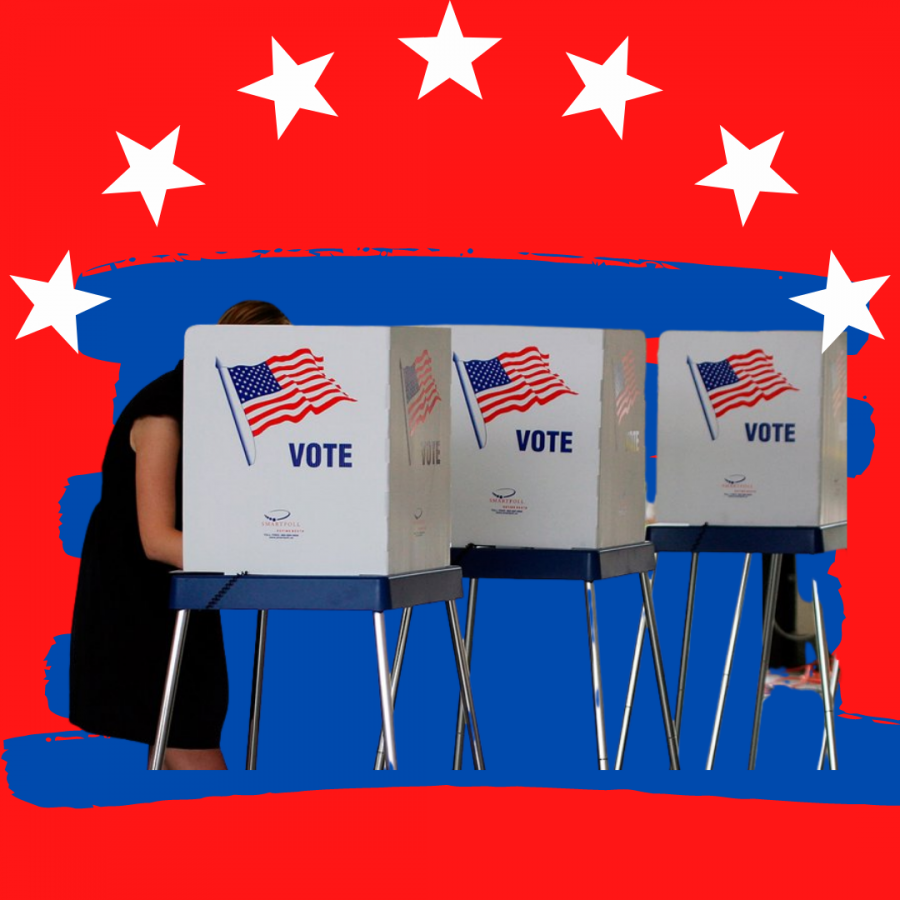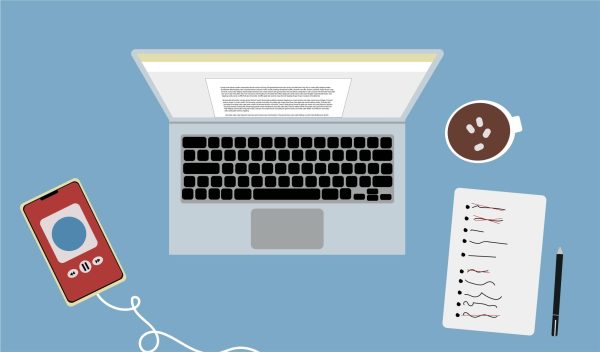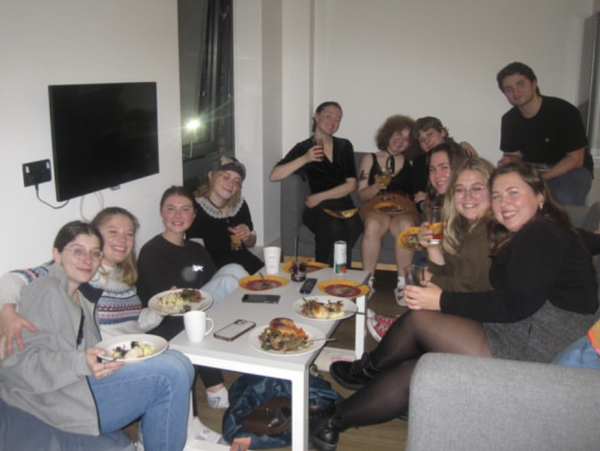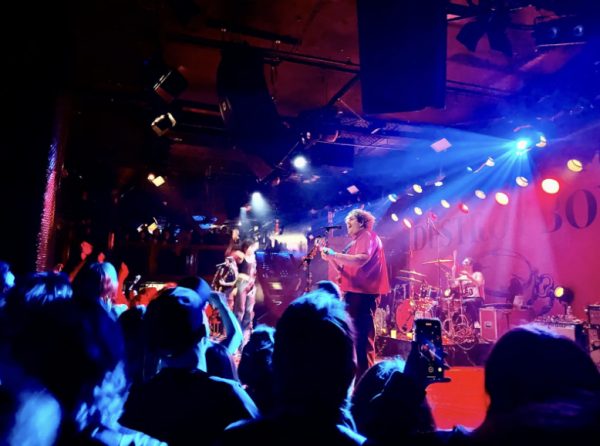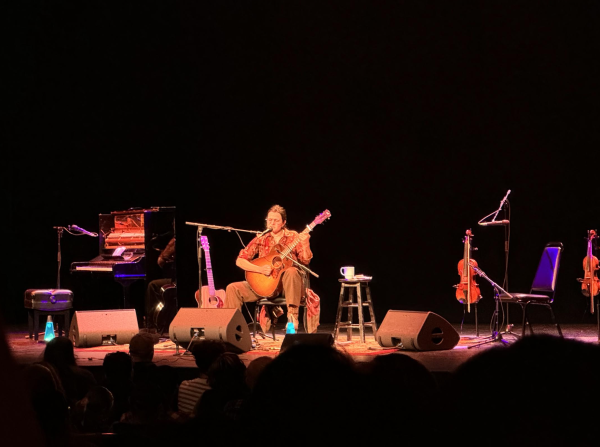What it was like to work the polls in 2020
November 30, 2020
Every presidential election, towns and cities nationwide gear up to prepare for election day, and voters everywhere go to their local polling station to exercise their civic duty. What voters might not know, however, is that there is a lot more that goes on behind the scenes to make sure our democracy runs smoothly. This election, I was one of many Americans who worked as a poll worker.
My day began at 6:30 a.m. when I arrived at my town’s polling place to prepare for this long day ahead of us. Much of the preparation before voting was open for the day included putting up signs to direct voters to their districts and setting up tables for the workers. My town recently voted to consolidate our polling places into one, so all volunteers and poll workers were in the new polling place: the middle school. Before opening, the poll workers gathered together, (socially distanced, of course,) to talk about our responsibilities, and the Town Clerk led us in raising our right hands and reciting an affirmation that we would be doing our job in accordance with the law and to conduct fair and proper elections.
Once the clock hit 7 a.m., voting was declared open, and a police officer officially opened the doors to usher in voters. The busiest time all day that we experienced was from 7 a.m. to 7:20 a.m. Voters had lined up all the way down the street to cast their ballots first thing in the morning.
My first job in the morning was to direct voters to the large bulletin board with all the street names in the town and the districts assigned to them. In order to keep things organized, I welcomed voters in and helped them find their districts. As the day progressed, I moved around the building, sharing other responsibilities such as sanitizing pens used by voters as well as assisting voters in putting their ballots into the ballot box. My town has ballot boxes that automatically count votes as the ballots are fed into the machine, so there was a running number of ballots counted in our polling place.
I spent most of my day signing voters in and giving them their ballots, meaning I was one of the people you meet right before you cast your ballot. According to Massachusetts law, we have to confirm your first and last name as well as your address and confirm once again to assure that the information provided is accurate. My town recently acquired iPads to use for election purposes, so our job was a lot easier than shuffling through thick packets of paper looking for names.After providing voters with a ballot, receipt and a pen, we reminded them to fill in the circles completely and to hand the receipt to the poll worker when they were finished voting. After filling out their ballots, voters handed their receipts to the poll worker standing next to the ballot box who would ensure that the voter was at the right district and proceed to help them put their ballot in the machine.
Being a poll worker from 7 a.m. to 8 p.m. lended to interesting encounters, meeting new people, and sharing some laughs. Spending 13 hours with a group of people sort of forces you to build a bond and create camaraderie with each other. We shared COVID stories and talked about our lives as we waited for voters to trickle in.
Interactions with voters throughout the day were also a highlight. It made me so happy to see first time voters, older voters, consistent voters, or even voters who were voting for the first time in decades. Like many parents, one woman brought her young daughter to vote, and as she was putting her ballot into the machine she kissed it and humorously said, “Ok buddy I voted for you, now you better win!” Another kid impatiently questioned why his dad was taking so long to vote.
During this time I also learned a lot of technicalities about voting. In Massachusetts, voters are not to wear any campaign paraphernalia inside a polling place. Several voters who had walked in with hats or buttons were promptly asked to remove them. One girl was asked to turn her t-shirt inside out so as not to display any campaign name.
At 8 p.m. when the Town Clerk declared that voting had officially closed, all the poll workers cheered. But after the doors closed, our work was not over. We had to pack up all the electronic equipment we had been using to count the votes and sign voters in; the custodial staff at the middle school wrapped up the voting booths while the volunteers and poll workers took down all posters and signs that had been put up; and last but not least, the ballots.
The ballots have to be unlocked from the ballot box machine and taken out. They were all laid out on the table, and the poll workers one by one sorted through to take out the write ins. The write-ins were to be separated and documented. And here’s something I discovered only after working as a poll worker: the completed ballots get packed up in a duffel bag.
Voting is a quintessential part of our democracy. I would even argue that the effectiveness of democracy depends entirely on the vote of the citizens. I, for one, had always dreamed of the day I could cast my ballot to vote for my elected officials and say that I put my voice out there and made a difference. This election was so important, not just for science, but the climate emergency, for Black lives, and our futures at stake. On a day that I knew was going to bring me immense amounts of anxiety and stress, I was glad to be a part of a band of poll workers helping to ensure voting in our town.



